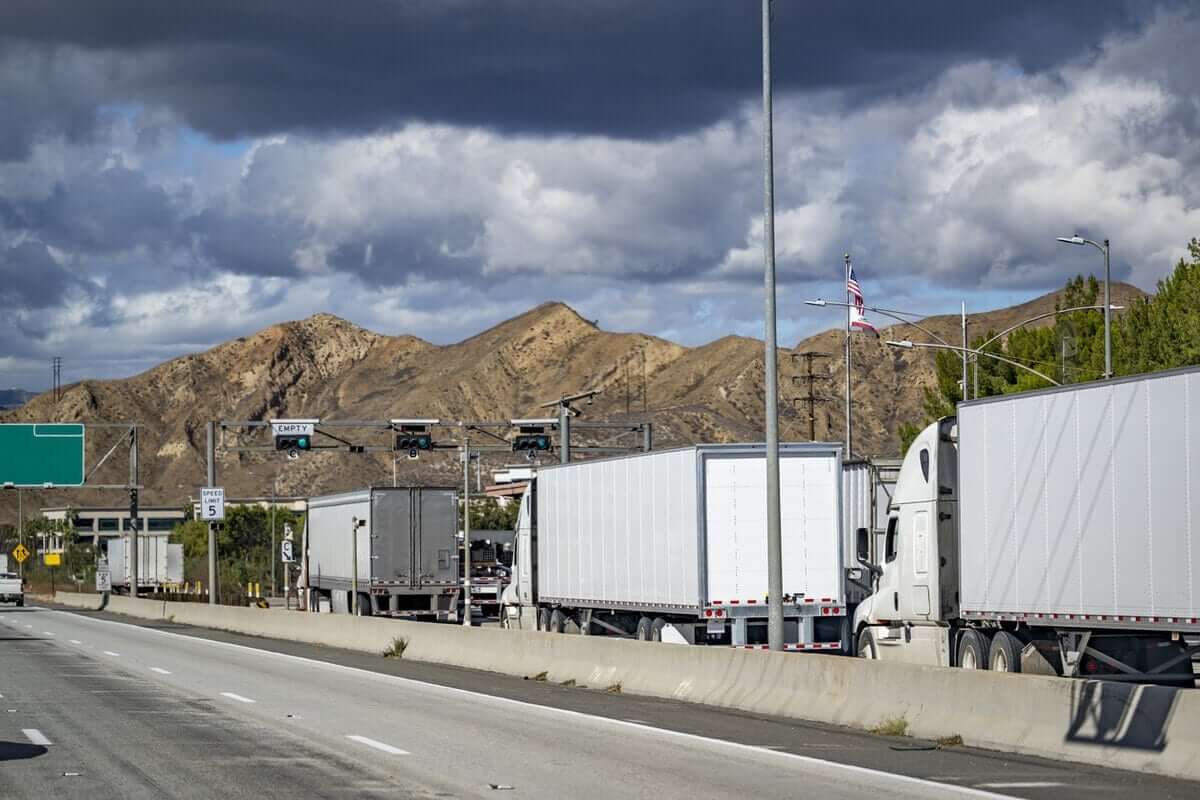Truck scales are essential to businesses across many industries. Designed to measure the weight of trucks and their cargo, they help ensure compliance with legal weight limits and increase efficiency.
Whether you’re in the transportation, agriculture, or construction industry, understanding what a truck scale is and how it works is crucial. Learn the basics of truck scales, including their purpose, functionality, and benefits.
What Are Truck Scales Used For?
Truck scales serve many purposes across many industries, but inventory tracking and regulatory compliance are two of the main uses.
Determining Load Weight and Tracking Inventory
Truck scales can determine the weight of the goods you’re transporting. Knowing shipment weights (incoming or outgoing) can help you streamline your processes, reduce costs, and improve overall productivity.
Plus, accurate weighing data lets you create precise inventory records and ensure the right amount of goods is transported. It may even help you flag theft or fraud during the transportation process.
Regulatory Compliance and Safety
Truck weighing data helps ensure that trucks are not overloaded and government weight regulations are met. Following regulations is especially important in industries such as transportation and logistics, where overloaded trucks can result in fines, penalties, and even damage to infrastructure.
In addition to meeting regulations, weighing data can help with safety. Adhering to weight limits can help you minimize the risk of accidents, boosting the safety of your drivers and the general public.
How Does a Truck Scale Work?
You can use truck scales to gather accurate weighing data like the tare weight (empty truck), gross weight (loaded truck), and net/load weight (gross weight minus tare weight). But how does a scale get those numbers?
Truck scales measure the force applied by a truck and its cargo on the platform to determine weight. Different truck scales — like weighbridge and axle scales — accomplish this in different ways.
Weighbridge Scales
Weighbridge scales consist of a long platform supported by load cells (sensors that measure the weight applied to them). When a truck drives onto the platform, the load cells detect the force and convert it into an electrical signal. This signal is then processed to provide weight information.
Axle Scales
Axle scales calculate the weight distributed across individual axles of a truck. These scales benefit industries that require precise weight distribution, such as the construction industry. Weighing each axle separately can provide valuable information that helps prevent overloading and ensure vehicle stability and safety.
How Accurate Are Truck Scales?
Truck scales can be highly accurate as long as you choose a reliable product and follow best practices for calibration and maintenance. Calibration involves adjusting the scale to make sure it gives accurate measurements within a certain range. Regular maintenance involves inspecting, cleaning/powerwashing, and servicing the scale to find and address any performance issues.
Investing in reliable and precise truck scales is crucial for maintaining accuracy and ensuring the integrity of your weight measurements. Even the slightest error can have significant consequences, leading to financial losses, legal issues, state-regulated fines, and damage to your company’s reputation.
Factors That Can Affect the Accuracy of Truck Scales
While truck scales are designed to provide accurate weight measurements with a tolerance of generally 20–40 pounds, several factors can impact their accuracy — mainly the environment and the scale’s condition.
Environmental Factors
Since truck scales are outside, environmental factors are one of the biggest concerns. Extreme temperatures, vibrations, and uneven surfaces can all affect performance. Staying on top of general maintenance and regularly pressurewashing your scales is crucial for helping with environmental concerns.
Scale Condition
The condition of the scale itself can impact how reliable it is. Over time, load cells and other components may wear down, decreasing the accuracy. Regular inspections, maintenance, and repairs are crucial for catching and addressing any issues.
Industries That Rely on Truck Scales
Truck scales are used in many industries where accurate weighing data is critical. Transportation, agriculture, and construction are just a few examples.
Transportation
The transportation industry relies heavily on truck scales to follow weight regulations and prevent overloading. Accurate weighing data can help business owners avoid fines, penalties, and delays caused by weight-related issues.
Agriculture
The agriculture industry also uses truck scales to weigh crops, livestock, and other agricultural products. Farmers and ranchers can use these scales to determine the value of goods, calculate shipping costs, and ensure fair trade practices.
Construction
The construction industry relies on truck scales to measure the weight of construction materials, such as sand, gravel, and cement. Weighing these materials can help construction companies avoid overloading their trucks, ensure the safety of their workers and equipment, and stick to weight restrictions set by construction sites.
Invest in Accuracy and Efficiency with UniFide CST
If you want to streamline your weighing processes and enhance overall efficiency, consider investing in a truck scale. Whether you want to rent a portable truck scale or purchase one, the experts at UniFide CST can help.
Don’t settle for subpar weighing solutions. Trust UniFide CST to deliver reliable, accurate, and durable truck scales that can help enhance your operations. Contact our experienced team today to discuss your needs, explore our extensive rental inventory, and find the perfect scale solution for your business.
